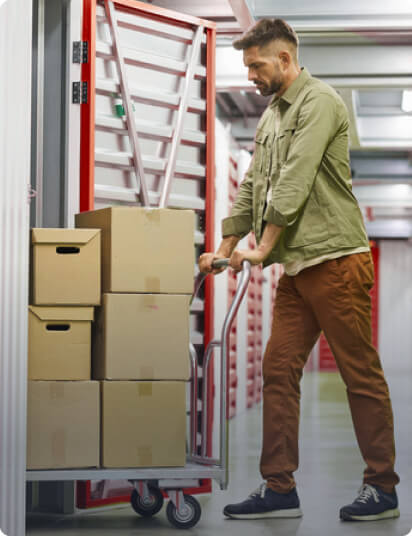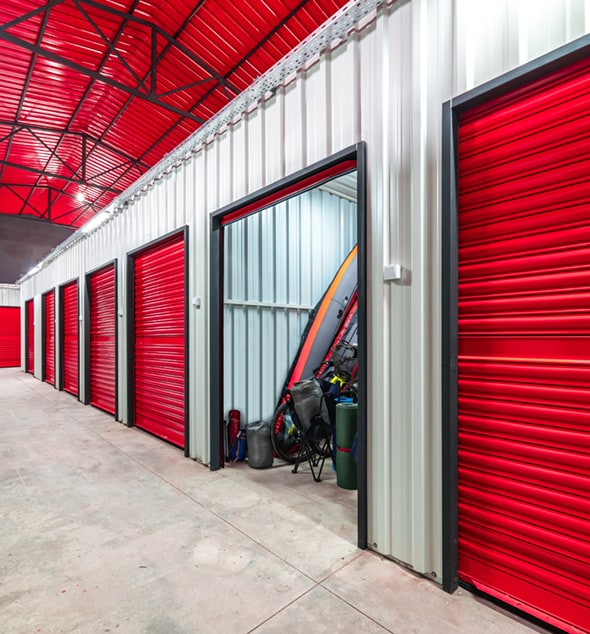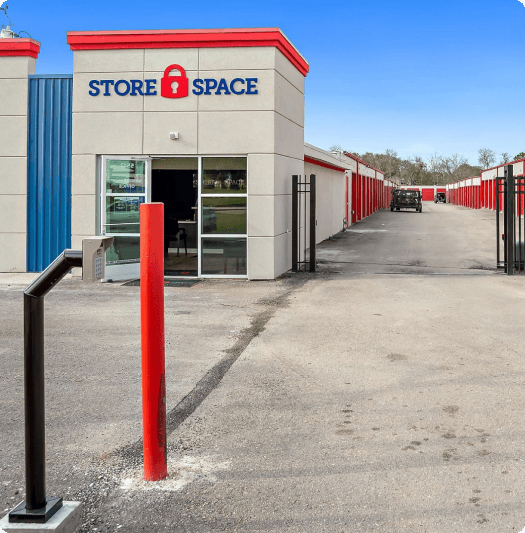7 Things NOT to Bring to College: How to Thrive in Your First Year Away From Home

Even though you're probably focused on building your " things to bring to college" list, a list of things NOT to bring to college is just as important! As you're packing for college, leaving the nest, getting ready for adventure, freedom and independence, don't forget to leave some things at home.
But, if you don't, there is always self-storage. Self-storage and college go hand in hand. Summer vacay? Self-storage. Semester abroad? Self-storage. Gap year? Self-storage. It’s your freshman year, you brought too much stuff and you don’t have room for it all? Self-storage.
Moving away from home, being on your own, wanting to make friends, being social, but also learning and trying to succeed—it can be overwhelming. With all that on your mind, of course, you’re prone to a little overpacking. It’s not the end of the world.
But, to preserve your sanity, here’s a list of things that are better to leave at home. If you still bring too much stuff, we’re here for you. Just check out Store Space for student storage solutions!
Don't Overpack: Leave These at Home
If you haven’t started packing yet, keep these things on the “no-go” list. Overpacking and tiny dorms don’t go well together.
1. Furniture
Here’s the deal. Dorm rooms come fully furnished. A desk, chair, bed and closet. Maybe even a dresser or bookshelf, too. So, add furniture to your things not to bring to college list. Many colleges won’t let you take their furniture out of the room, so even if you brought your favorite chair, there’s no way it would fit anyway.
Pro tip: Do bring a mattress pad. A lot of colleges have descriptions of what is in each dorm and what size the bed is (usually they’re the twin-XL so be sure to check). There will already be a mattress, but 90% of the time they’re not the best. You can get mattress pads at places like Walmart, Target or even Costco that will make sleeping much more comfortable.
2. Kitchen Appliances
A toaster, a panini maker, and a blender walk into a dorm. No, no they don't—because those are things not to take to college! Most of the time, freshman living on campus are required to have a meal plan. Plus, most schools won't allow them anyway (fire hazard). So, you’ve got no business bringing kitchen appliances to your dorm because they’ll go unused, get broken by your roommate and just take up space.
Pro tip: You don’t have to ditch every kitchen appliance if you really think you’ll use it. So, if you’re a big coffee drinker, a single-serving coffee maker might be a good idea. Also, a majorly underrated college kitchen appliance is an electric kettle. It’s not just for tea (even though it’s great for tea). You can also heat up water for ramen, mac 'n' cheese, soup and so on. They’re inexpensive, not very big, and super useful.
3. Printer
“But what if I have lots of things to print?” While more professors are making students use online tools like Google Docs, you will still have to print a few things. Fortunately, all colleges have print centers around campus. Some will have free printing, and others just charge your account. It’s a good idea to look up specific printing guidelines and info for your university. But, don’t bring a bulky printer that you won’t use.
Pro tip: When you get to campus, find out where the computer labs/printing centers are. If you’re an arts major or you know you’ll have to print in color, figure out where the color printers are as well. (Not all of the labs/centers will have color printing, and it may cost extra.)
4. Every item of clothing you own
Clothes are so easy to overpack. The idea “what if I really want to wear this and then I don’t have it” can mess with your head. You don’t want to end up bringing a neon pink sweater from 7th grade you’ve literally never worn. A good rule of thumb is if you haven’t worn it in a year, you probably won’t wear it in the next few months.
Pro tip: Don’t bring off-season clothes. Bring clothes that would be comfortable for the next few months, because there’s no need to bring winter clothes when it’ll be warm all semester. Use semester breaks to swap out seasonal clothes when you visit home.
5. Books on books on books
We applaud anyone out there wanting to bring their favorite books to college. But there are a few things to remember about bringing your books. First, you won’t have space for them all; second, you’ll be so busy freshman year you won’t have a lot of time for leisure reading; and third, your campus library will have plenty of options if you really need to crack open a book. So, maybe it's okay to not bring them to college.
Pro tip: These days, campus libraries are used for studying and not checking out books. But before going to the bookstore to buy all your textbooks, check the library! They may have what you need, and you’ll save a bunch of money!
6. Random school supplies
Obviously, it’s a good idea to bring school supplies to college, but it’s an even smarter idea to wait until after your first day of classes to get the required supplies. Bring the basics with you (notebooks, pencils and pens), but don't use up valuable dorm storage space on items you might not use. Keep in mind that your professors will probably give you a list of everything required on the first day. There's nothing worse than finishing a semester and realizing you only used 3 notebooks, 2 pens and 1 folder but bought 5x that much.
Pro tip: Now that laptops and tablets are the note-taking norm, you may wonder why you would even need a pen or paper. Well, scientific studies have concluded handwriting engages your brain more than typing. So, stay old-school, find your favorite pen and ace that test.
7. Prohibited items
It’s always a good idea to check your school website for prohibited items. These are definitely on the things not to bring to college list. Most often things like candles, hot plates, space heaters and irons are not allowed in a dorm room. Usually, you can’t nail/screw anything in the walls or hang anything that could damage the paint, so leave your longboard mount at home. Did you know, Axe body spray is prohibited at most colleges? (Just kidding, but we think leaving it at home is for the best.)
Pro tip: Command Strips are great for decorating your walls. Whether you’re looking for a hook for your jacket or keys, Velcro for posters or normal sticky strips, there’s plenty of options to choose from.
FAQs for Things Not to Bring to College
Q: What do you actually need for college?
A: As mentioned above, it’s easy to overpack for college. But if you had to pick only a few essentials to bring, they might include a laptop or notebook, backpack, first aid kit, tool kit and textbooks. You’ll also want to bring clothes, toiletries and bedding. Make sure when you’re packing you take the extra minute to consider whether you’ll need an item or not. If you do that, you’ll be just fine!
Q: How do I pack less for college?
A: Make a plan, write out a list, and stick to it. Do your research, talk to your roommate, don’t pack clothes if you haven’t worn them for over a year, and ask for help! Packing for college is a big feat, the more help you can get from family and friends, the easier it’ll be.
Q: When should you start packing for college?
A: You should give yourself plenty of time to pack for college. But whether you do that or not depends if you’ve already built a habit of procrastination—uh oh. Anywhere from a month to a couple of weeks is ample time to get ready for freshman year!
Q: What do you need for the first day of college?
A: For your first day of classes, it’s a good idea to have basic school supplies. A notebook, pencil or pen should do just fine. When packing for the semester, bring these minimal school supplies and then wait to see what professors require for each of your classes.
Q: What can't you bring to college dorms?
A: What is prohibited in college dorms can vary from school to school. Common items are candles, space heaters, or nails and screws to hang things on the wall. It's a good idea to check your school website so you don't bring anything that is not allowed!
Wrapping Up Things Not to Bring to College
We hope this list gave you a little better idea of things not to bring to college. Remember, if you end up overpacking, or bringing way more than you needed to, Store Space is here to keep everything out of the way. Check out these tips to maximize space in a small apartment (or dorm). Have a kick-butt freshman year!
Check out our storage location finder page for a location near your campus!







